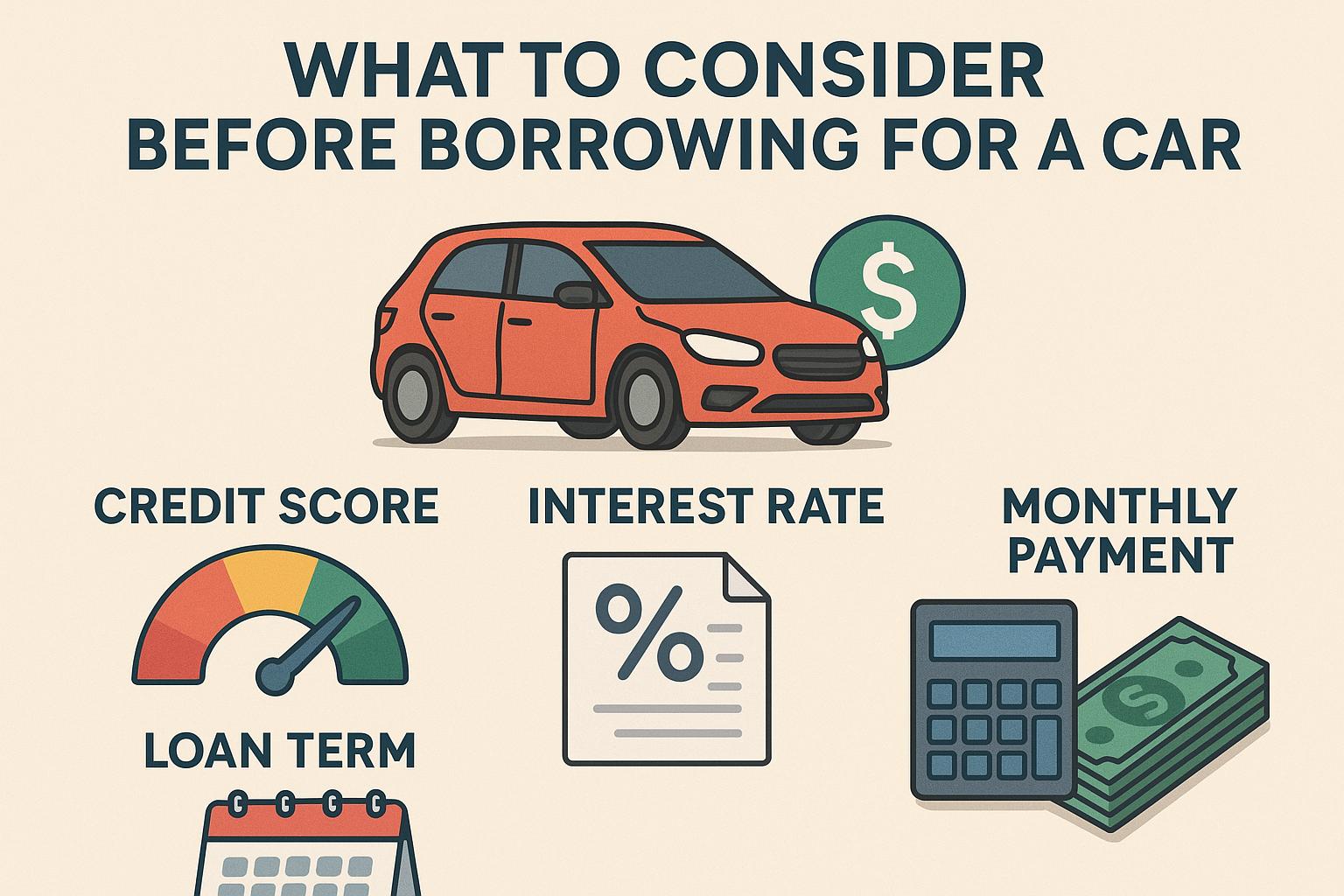Understanding Your Financial Situation
Before embarking on the process of borrowing money to purchase a car, it’s important to clearly understand your current financial status. This involves a meticulous assessment of your monthly income and expenses. Evaluating your financial situation helps you determine how much you can comfortably allocate toward a car payment. The process requires a comprehensive overview and careful consideration of all current financial obligations, including existing debts and regular monthly commitments. It is crucial to ensure that a balanced budget is maintained—one that covers all necessary expenses and savings goals without causing undue financial strain.
To begin with, reviewing your monthly income is essential. Take into account all sources of income, including any side jobs or passive income streams. This provides a comprehensive view of how much money you have at your disposal. Equally, it is critical to look at your fixed and variable monthly expenses, such as mortgage or rent, utilities, groceries, and other personal expenditures. An accurate assessment of these can help you identify how much discretionary income remains, which can then be allocated toward a new car payment.
Evaluating the Total Cost of Ownership
Buying a car involves more than focusing solely on the sticker price or the potential loan amount. A more holistic approach includes consideration of the total cost of ownership, which can influence your financial planning significantly. This total cost covers multiple facets including insurance, maintenance, fuel, and registration fees. Understanding these elements is essential because they can add substantially to the initial cost of the vehicle.
The vehicle’s make and model can significantly sway these associated costs. For instance, some vehicles come with higher insurance premiums due to their type or safety rating. Similarly, luxury cars might incur higher maintenance fees, impacting your calculations for long-term affordability. It’s important to embark on thorough research to ensure that the car you are contemplating fits within your budget—not just in the immediate sense, but over the entire period of ownership.
Interest Rates and Loan Terms
The interest rates and terms of your car loan can significantly affect the overall cost of purchasing the vehicle. It’s beneficial to compare rates from various lenders, including traditional banks, online lenders, and credit unions, to identify the most favorable conditions. Doing this involves some legwork but can result in considerable savings.
Generally, a lower interest rate coupled with a shorter loan term results in lower overall costs for the vehicle. This is because less interest accumulates over a shorter period. However, this setup also implies higher monthly payments. Hence, it’s crucial to evaluate your financial capability to handle these increased payments, ensuring they are manageable without impacting other facets of your financial commitments.
Credit Score Impact
Your credit score is a pivotal factor that determines the interest rate you will be granted on your car loan. A higher credit score generally translates to lower interest rates, rendering the loan more affordable over time. Therefore, it’s crucial to review your credit report before applying for a car loan. This review should focus on identifying and rectifying any inaccuracies that might be present, impacting your score negatively.
Taking steps to improve your credit score, such as paying off existing debts or addressing errors, can lead to better loan offers. These actions might save a significant amount over the life of the loan. Even seemingly small adjustments to your credit score can yield favorable results, making this a worthwhile step in preparing for a car loan application.
Pre-Approval and Loan Offers
Another strategic approach includes securing pre-approval from a lender before setting foot in a dealership. Pre-approval provides a clearer view of your budget and positions you as a serious buyer during dealership negotiations. This status can be advantageous, allowing you to explore different loan offers more effectively.
When you have multiple loan offers, you can scrutinize each to compare terms and conditions carefully. By doing so, you emphasize choosing a loan agreement that aligns best with your financial status and goals. This methodical approach can provide peace of mind, knowing you’ve made an informed decision that enhances your financial security.
For more information on managing car loans, consider visiting this resource, which offers valuable insights into auto financing.
Being informed and well-prepared before borrowing funds for a car is an excellent strategy for arriving at a financially sound decision. This preparation involves not only balancing your current budget but also planning for future financial stability, ultimately ensuring the acquisition of a reliable vehicle that accommodates your needs without overwhelming your fiscal resources.

